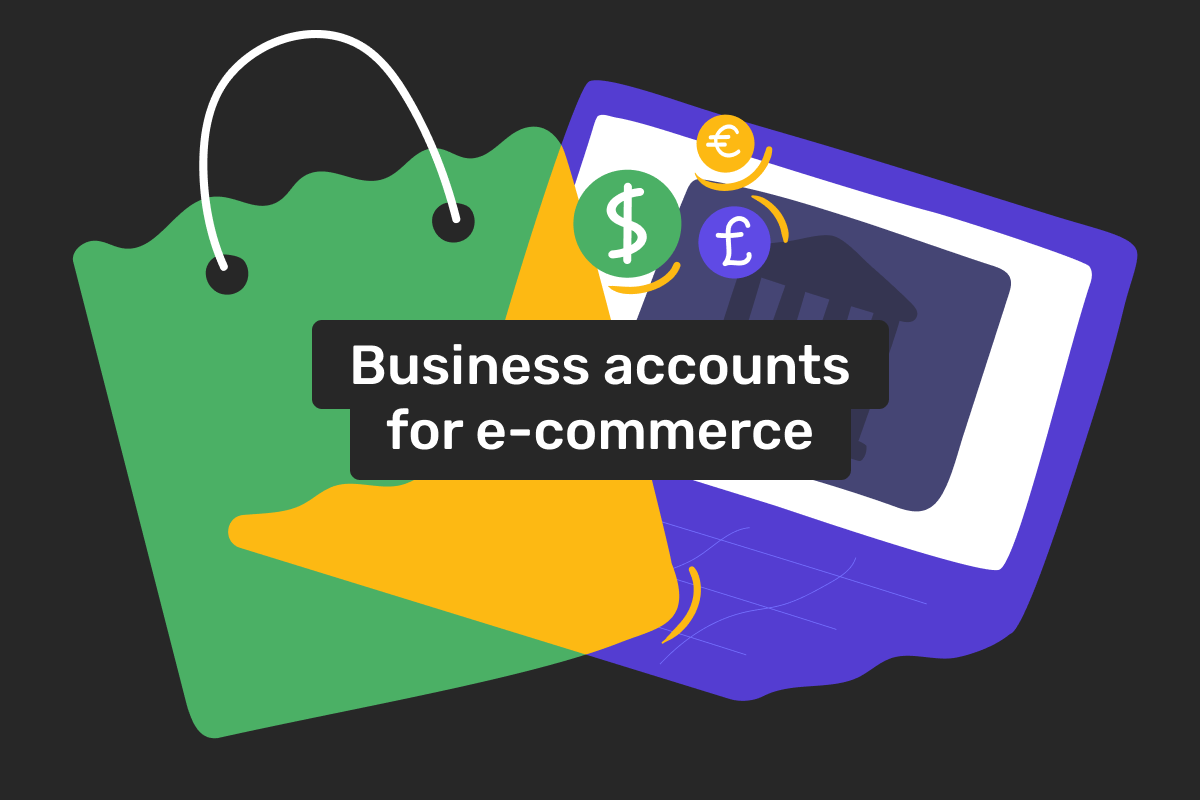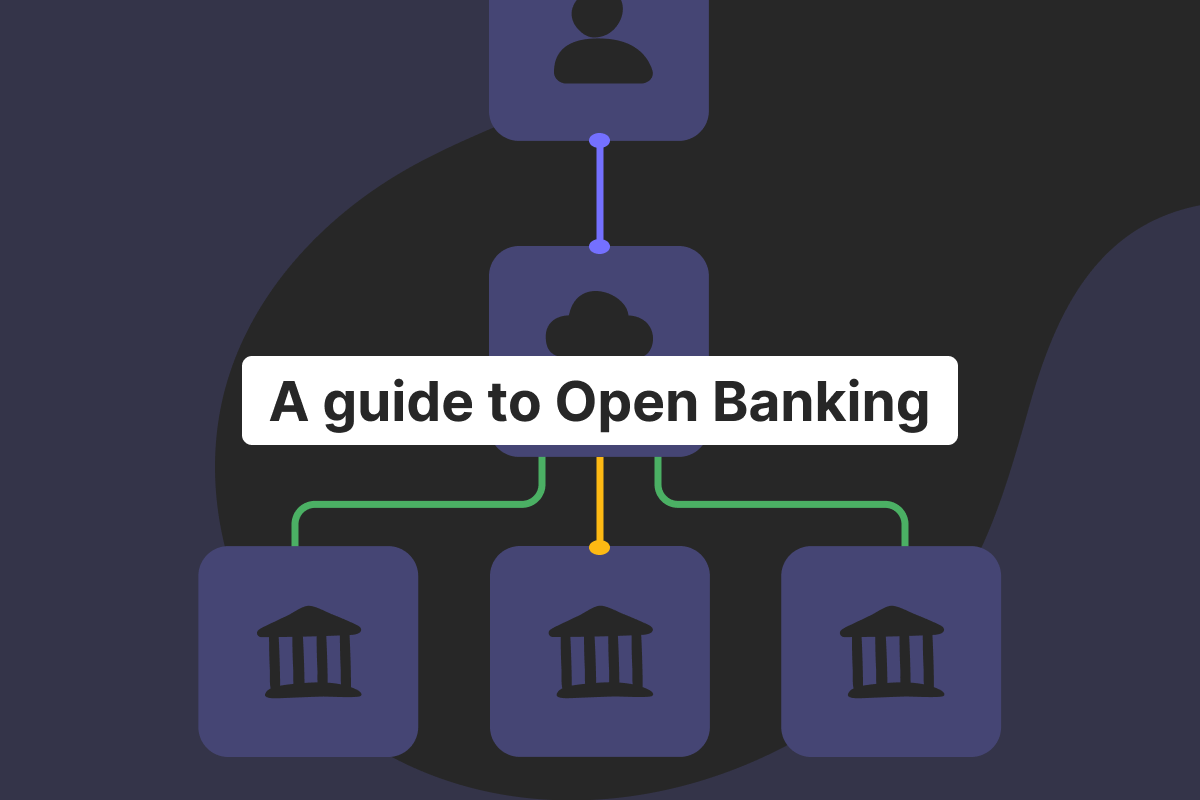The ecommerce/e-commerce business landscape has grown massively in recent years and is expected to climb from US$4,3 trillion in 2025 to US$5,9 trillion in 2029. While this rapid acceleration has created numerous opportunities, it has also led to issues, such as needing to know what the best bank account for this sector is. We’ll be looking at how understanding business banking services allows you to get a suitable ecommerce account.
In this article, Genome‘s team explains how to pick the best business bank account for ecommerce and how to use it to benefit your business needs.
The basis of ecommerce bank accounts
Whether you’re about to start a new business, like an online store, or have an existing business, you need a modern banking solution. It is about how to deal with your business operations using credit and debit cards, cash deposits, ACH transfers, and so on. It gives you a sensible approach to financial management and payment processing that makes sense without large monthly fees.
With robust security measures and online banking options, a new account helps you manage your funds. Your business transactions are likely to include customer payments that need to be processed accurately to boost customer service quality. You also need to pay your suppliers and for other business services you receive.
Thanks to the global nature of ecommerce, international payments, and currency conversion fees are now a part of life. With business checking and current accounts from traditional banks, you may struggle to get the right banking solutions for your modern business needs. It is why ecommerce accounts are designed to give you the service you need to progress more effectively.
Definition of an ecommerce bank account
An e-commerce bank account is a specialized type of business bank account designed to meet the unique needs of online businesses. Unlike traditional business accounts, ecommerce accounts offer features that cater specifically to the digital marketplace. These accounts facilitate seamless online payment integration, compatibility with various ecommerce platforms, and support for multi-currency transactions. By providing tools to manage cash flow efficiently and integrating with ecommerce platforms and payment gateways, ecommerce bank accounts simplify financial management for online retailers, digital service providers, and businesses that rely heavily on online sales channels.
Open an account
in Genome online
Key features of ecommerce bank accounts
Ecommerce bank accounts come equipped with a range of features tailored to the needs of online businesses. Here are some key features to look for:
Online payment integration: Seamless integration with online payment gateways and services ensures smooth transaction processing.
Ecommerce platform compatibility: Easy connection with major ecommerce platforms like Shopify, WooCommerce, Amazon, and eBay.
Multi-currency transactions: Support for transactions in multiple currencies, making international sales more manageable. Low monthly service fees or zero monthly fees help global ecommerce companies become more profitable.
Fast settlement times: Quick processing of online transactions to improve cash flow.
Fraud protection and security: Advanced security measures to protect against fraud and unauthorized transactions.
Accounting and bookkeeping integration: Direct integration with accounting software like QuickBooks, Xero, or FreshBooks for streamlined financial management.
Automated invoicing and billing: Tools to generate and send invoices automatically, saving time and reducing errors.
Customer support: Dedicated support for ecommerce businesses to address specific needs and issues.
The criteria for an ecommerce business bank account
On the surface, business bank accounts for ecommerce are similar to any other type of account. They include many common standard banking services, such as money transfer options, cash deposits, debit cards, and payment processing.
Yet, business bank accounts for ecommerce business purposes have key differences from corporate financial operations. For instance, you will need this account to pay contractors and employees, accept transfers from business partners, or even make payouts to clients. The large number of transactions means that keeping monthly fees low and the maintenance simple are vital factors.
Now, let’s take a look at the main services and features of the best business checking account for ecommerce that you need to consider.
Availability. Ensure that the bank provides ecommerce accounts, as this option means you get the right services and reasonable transaction fees.
The locations and markets. Many ecommerce companies need to be able to work with clients from different parts of the world. To target different markets, you must ensure that the financial institution where you open an ecommerce business bank account operates there.
The currencies you can use. Dealing with international customers and suppliers raises extra challenges. You can’t use a standard current account or checking account in your local currency. Instead, you need to receive competitive exchange rates that allow you to switch funds as often as necessary.
Features to consider when choosing an ecommerce bank account
When selecting an ecommerce bank account, it’s essential to consider features that will support your business’s growth and operational efficiency. Here are some critical aspects to evaluate:
Fees: Look for accounts with low or no monthly fees, transaction fees, and minimum balance requirements to minimize costs. High monthly fees will eventually eat into your profits.
Integration: Ensure the account integrates seamlessly with your ecommerce platform, payment gateways, and accounting software for smooth operations.
Security: Check for advanced security measures, such as multi-factor authentication, encryption, and real-time fraud detection, to protect your business.
Customer support: Opt for an account with dedicated customer support tailored to ecommerce companies, ensuring you get the help you need when you need it.
Scalability: Choose an account that can grow with your business, offering features like multi-currency transactions and fast settlement times to support expansion.
Mobile banking: Consider an account with a mobile banking app that allows you to manage your finances on the go, providing flexibility and convenience.
Cash flow management: Look for features that help you manage your cash flow, such as automated invoicing and billing, to keep your finances in check.
Open an account
in Genome online
The difference between business and merchant accounts for ecommerce businesses
Let’s compare business and merchant accounts to get a better grasp of their functionality:
Criteria | Business account | Merchant account |
The main purpose | It separates your personal finances and corporate finances. It is used for basic financial operations. | It is used to collect funds that clients pay for the company’s goods and services. |
Does a company need it? | Yes. | Not necessarily. Only if the company needs to accept payments from customers. |
Can an account exist individually? | Yes. | No, if you have a merchant account, you also need a business account. The reason is that the money from your merchant account needs to be settled into the account. Otherwise, you cannot use them. |
Can you have multiple accounts? | Yes. | Yes. |
Merchant accounts for ecommerce
Before choosing the right ecommerce merchant accounts, you need to know how they work. It’s not like savings accounts, where you add your own funds. Rather, it’s a type of account that’s suitable for accepting payments from clients. An ecommerce account is specifically designed to support the unique needs of online businesses, offering features like merchant processing and integration with financial tools.
This is how a merchant account for ecommerce works:
The merchant creates a website and sets up a checkout page for customers to pay
Clients use the checkout page, paying through online banking methods like debit cards and transfers, or alternative payment methods.
The customer’s transaction is authorized and moved to the merchant account.
You can’t use the funds you have earned while they are inside your merchant account. However, you can see the financial data and plan accordingly.
After a certain period (usually 3 to 7 days; financial providers set different periods), the funds are moved from a merchant to an ecommerce business bank account or your savings accounts. They can now be accessed using a business debit card or other methods used by small businesses.
When selecting a merchant account attached to an ecommerce bank account, ensure that:
It works with major card networks used by traditional banks and online providers.
Many local and international payment methods can be used.
Customers can pay in different currencies, with low transaction fees and good exchange rates.
It provides payment pages that are suitable for you (hosted payment pages, host-to-host, mobile SDK, etc.).
You can customize the checkout page and use it with cash management tools to handle your cash flow more easily.
The financial provider follows major regulations – 3DS2 and PCI DSS.
Allows payment processing integration with Shopify and other major ecommerce platforms
Additionally, consider any monthly maintenance fees associated with the account to ensure they fit within your budget.
Open an account
in Genome online
Types of business bank accounts for ecommerce
Ecommerce companies have several types of business bank accounts to choose from, each offering unique benefits:
Business checking accounts: Designed for everyday business transactions, these accounts often come with debit cards, checks, and online banking. They are ideal for managing daily expenses and cash flow. Excess funds can be moved to business savings accounts to earn interest.
Merchant services accounts: These accounts provide payment processing solutions for ecommerce, allowing them to accept credit card payments and other forms of payment. They are essential for handling customer transactions.
Online business bank accounts: Specifically designed for online businesses, these accounts offer features like online payment integration and ecommerce platform compatibility, making them perfect for digital operations.
Multi-currency accounts: These accounts allow ecommerce companies to hold and manage multiple currencies, simplifying international transactions and reducing currency conversion costs.
Separation of personal and business finances
Separating personal and company finances is crucial for ecommerce. A dedicated account helps to:
Keep finances separate: Maintaining separate accounts for personal and business finances makes it easier to manage taxes and accounting, ensuring clarity and organization. You need to be able to make free cash deposits and certain unlimited free transactions in a way that suits you.
Build business credit: An ecommerce business account helps build business credit, which can be beneficial for securing loans and credit lines in the future. Ensure you maintain a good minimum balance while avoiding overdraft fees and other issues.
Lend credibility: Having an account lends credibility to your business, making it easier to establish relationships with suppliers and partners. A new bank account is a sign that you take your business seriously.
Avoid tax issues: Separating finances helps avoid potential tax issues and penalties associated with commingling personal and business funds.
Clear financial picture: Such an account provides a clear picture of your business’s financial performance and cash deposits, making it easier to make informed decisions and plan for growth. This is a key business advantage in any industry.
Get the best business bank account for ecommerce at Genome!
If you are looking for an account for your ecommerce company, Genome has all you need and more, as we provide even more tailored solutions to meet your specific needs. We are an Electronic Money Institution that provides both business and merchant* accounts for ecommerce entities.
Our business wallet allows you to hold up to 5 accounts for each of the following currencies: USD, GBP, EUR, PLN, CHF, JPY, CAD, CZK, HUF, SEK, and AUD. You can make corporate transfers using SEPA, international transfers such as SWIFT, and Genome’s internal transfers.
Open an account
in Genome online
Not only that, but you can send up to 3000 transfers at once using our mass payout feature. Moreover, you can access our instant notifications for all your C2B payments.
You can also allow employees access to your business wallet by securely giving them access via the shared account tool. Speaking of security, Genome also provides a security token to authorize each outgoing transaction.
*Please note that Genome’s merchant services have been temporarily unavailable since September 2024.
FAQ
Do you need a business bank account for ecommerce?
As an ecommerce business of any kind, you need an account for corporate financial operations. It especially goes for ecommerce companies, as they work with multiple clients, as well as business partners, contractors, delivery services, etc. For all these things, business and merchant accounts are in place.
What are the benefits of a bank account for ecommerce?
It is a suitable type of account for ecommerce companies. The best business checking accounts for ecommerce offer merchant accounts that allow companies to accept payments globally and have a diverse range of payment methods and currencies. Consider the monthly fee associated with the account to ensure it remains cost-effective for your business.
Which bank account is best for e-commerce business?
There are many options for ecommerce business accounts on the market. The best option for a company is to carefully assess all the features banks and financial providers offer and choose the most suitable type of account for them. Additionally, consider banks that offer small business loans to support your growth and operational needs.
Are merchant accounts the same as ecommerce bank accounts?
No, they are different, as they provide various services. A business account is necessary for basic financial operations like money transfers, accounting, and withdrawals.
Meanwhile, merchant accounts can only be used by companies to accept payments from their clients. After a certain period, the money earned will be transferred from the merchant account to the business. So, it’s best to have both a business and a merchant account.






